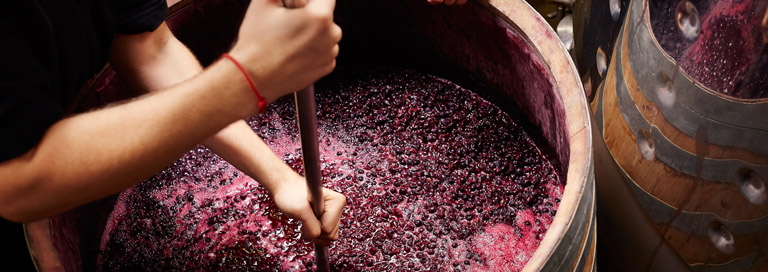Not long after I wrote the book The Doctor’s Heart Cure, my office manager told me I had a call from Dr. William Castelli. He was one of the pioneering lead directors of the famous Framingham Heart Study.
This is the most well-respected study of its kind. In the last 65 years, it has produced more than 3,000 articles in leading medical journals.
“Hello, Dr. Sears… Al,” Dr. Castelli said. “Can I call you Al? I want to congratulate you on picking up something essential from the Framingham Heart Study that almost nobody talks about…
“The main conclusion of the study – more than any other factor – your lungs determine how long you will live.
“I’m so glad to see it in your book.”
I’ve been talking about lung power with my patients for decades.
Without enough lung power, you risk a dangerous oxygen deficit in every cell, tissue, organ, and organ system in your body.
Reduced lung power means:
-
- You lose vitality and stamina and become short of breath
- Your cells lose the energy they need to repair DNA
- Your immune system slows down
- You raise your risk of serious diseases — including cancer, COPD, and ALS
Low lung power means your heart isn’t as strong as it should be… your circulation slows down, and insufficient oxygen reaches your brain, raising the risk of cognitive decline.1
So it’s not surprising that the Framingham Heart Study and the American College of Chest Physicians’ follow-up study both found poor lung health to be the primary indicator of all-cause mortality.2,3
Throughout my career, I’ve helped patients restore lung power using my PACE principle, nutrients, and food.
Today, I’ll show you another way to help protect your body’s most valuable organ…
Red Wine Nutrient Reverses Lung Age
At the Sears Institute, we determine how
old your lungs are by measuring your VO2 max levels. This tells us how much oxygen you can use when you exercise. And how much lung power do you have.Lung power typically decreases with age. But it doesn’t have to.
For example, a 60-year-old man with above-average lung power has “younger” lungs than his peers. The same man with a VO2 max below his peers would have “older” lungs.
Researchers recently discovered that the red wine antioxidant quercetin can supercharge your VO2 max levels.
Because of its positive effects on lung function, researchers at the University of South Carolina evaluated quercetin to see if it could increase lung power and delay fatigue.
They took healthy but untrained people and tested their VO2 max and the time it took them to tire out while riding a bike. Then they split them into two groups. Half got 500 mg of quercetin twice a day, and the others got a placebo.
After seven days, the quercetin group had increased VO2 max by 4% without doing anything else. And their endurance increased by an incredible 13%.4
Not that I would recommend this, but for the sake of making a comparison, let’s say you ran in the Boston Marathon last year and finished in 4 hours and 10 minutes.
If you could improve your performance by 13%, you would finish the race this year in about 3 hours and 37 minutes, shattering your previous time by over a half-hour.
Another study found that even the common cold can’t stand up to quercetin…
In this study, researchers noted that “quercetin has been shown to reduce viral load, lung inflammation, and airways.”5
Just last year, researchers found that it protects against pneumococcus, the common cause of pneumonia.
You can find quercetin in a lot of foods. Those with the highest levels include elderberries, red and white onions, cranberries, red apples, pears, broccoli, leafy green vegetables, and tomatoes. It’s also found in olive oil, tea, and red wine.
Boost Lung Power With Quercetin
But it’s not easy to get what you need from your diet. Here’s what I tell my patients:
-
- Supplement with 500 mg twice a day. If you have a virus, bump that up to 1,200 mg daily. Be sure to look for a special kind of quercetin called isoquercetin. Compared to the more common rutinoside form, isoquercetin is better absorbed and reaches the bloodstream 10 times faster.
- Try my favorite form of quercetin. I’m talking about the Buchu plant I discovered during my travels. You can get it as a powder or a tincture, but I recommend Buchu tea. Here’s a simple recipe I learned in South Africa:
-
- Place four teaspoons of dried Buchu leaves into two cups of boiling water.
- Let soak for about 10 minutes.
- Strain out the leaves.
- Add a spoonful of honey or Stevia to sweeten.
Sip your tea slowly. You should start to feel the benefits after just one cup. Keep the rest in the refrigerator and heat when needed.
Buchu is a strong herb, so start slowly. It may cause gastrointestinal irritation, so take it with meals. Also, pregnant or breast-feeding women should avoid buchu.
To Your Good Health,

Al Sears, MD, CNS
References:
1. Dodd J. “Lung disease as a determinant of cognitive decline and dementia.” Alzheimers Res Ther. 2015.
2. Splansky GL, et al. “The third-generation cohort of the…Framingham Heart Study: Design, recruitment, and initial examination.” Am J Epidemiol. 2007;165(11):1328-1335.
3. Schünemann HJ, et al. “Pulmonary function is a long-term predictor of mortality in the general population.” Chest. 2000;118:656-664.
4. Holden S, et al. “Dietary antioxidant supplementation combined with quercetin improves cycling time trial performance.” Intl J Sport Nutr. 2006;16:405-419.
5. Kinker B, et al. “Quercetin: A promising treatment for the common cold.” J Anc Dis Prev Rem. 2014;5:2(2):111.

